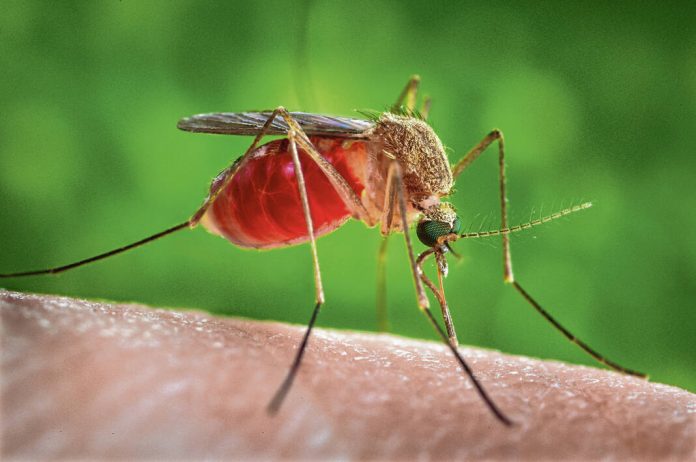The West Nile virus has been detected in Johnson County. Now health officials are asking residents to take steps to protect themselves from mosquito bites.
Johnson County Health Department officials have a number of sites across the county that they monitor for mosquitoes and possible viruses. On Thursday, the department was notified by state health officials that the West Nile virus was detected in a sample taken from a pool of mosquitoes at the Whiteland Wastewater Treatment Plant, Johnson County Health Department Director Betsy Swearingen said Monday.
Of the three Johnson County mosquito pools tested, the pool located at the Whiteland Wastewater Treatment Plant was the only one to test positive for the virus, according to the Indiana Department of Health’s Mosquito-Borne Diseases Dashboard. The mosquito pool is separate from the actual facility.
The West Nile virus is primarily transmitted in Indiana by mosquitoes, and its associated disease is the most commonly reported mosquito-borne disease in Indiana and in the United States. While most people who become infected with the virus do not develop any symptoms, some people can develop severe inflammation in the brain, spinal cord or other parts of the nervous system.
This is not the first time the West Nile virus has been detected in Indiana this year. To date, the virus has been detected in 28 Indiana counties — all in mosquito pools, according to IDOH’s Mosquito-Borne Diseases Dashboard.
So far this year, there have not been any reports of human infection in the state, officials say.
The best way to prevent the virus is to avoid mosquito bites, and health officials are stressing the public take preventive safety measures now.
Residents should make sure to use EPA-registered mosquito spray, wear long-sleeve shirts and pants, stay away from standing water and report any illnesses to their doctors. Other steps people can take include repairing any broken screens on windows and doors, as well as avoiding being outdoors when mosquitoes are active during the evening, from dusk to dawn, and the early morning hours, according to state and local health officials.
Other preventative measures focus on eliminating opportunities for mosquito breeding. People should make sure there’s no standing water on their property, which can be a breeding ground, Swearingen said.
Items that hold water, such as birdbaths, toys and pools, should be emptied and scrubbed. Old tires, tin cans, ceramic pots and other containers that can hold water should be disposed of or stored out of the elements. Water in pet bowls should also be frequently replaced, state health officials say.
Mosquito breeding can also be eliminated by repairing failed septic systems, drilling holes in the bottom of recycling containers left outdoors, and keeping grass cut short and shrubbery trimmed. Cleaning clogged roof gutters, aerating ornamental pools and stocking pools with predatory fish is also recommended.
The JCHD will continue to monitor the situation in the coming weeks, Swearingen said.
“Just be safe … Be careful with mosquitoes,” she said.
To learn more about what to do to prevent the West Nile virus, go to cdc.gov/westnile/index.html.





